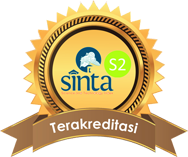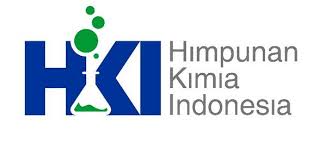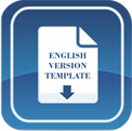TRAINING OF SCIENCE LITERACY SKILLS IN CHEMICAL EQUILIBRIUM THROUGH IMPLEMENTATION GUIDED INQUIRY LEARNING
DOI:
https://doi.org/10.15575/jtk.v5i1.7550Keywords:
science literacy, chemical equilibrium, guided inquiry learningAbstract
Science literacy is the main key to face challenges in the 21st century. The research aimed to describe the students’ science literacy on chemical equilibrium topic through implementation of guided inquiry learning model. The research design used is One-Group Pretest-Posttest Design. The research was conducted in class XI MIPA 4 of SMAN 3 Surabaya. Data obtained by instruments of multiple-choice tests of science literacy and observation sheet. The result showed that every aspect of students’ science literacy skills was increased in the medium criteria, it was indicated by an average gain score of 0.6 for competence to explain scientific phenomena and to evaluate data and design scientific investigations. Moreover competence of interpreting data and scientific evidence obtained gain score of 0.7. The result of this research indicated that the skill of science literacy had been trained to students.
References
Anggraini, G. (2014). Analisis Kemampuan Literasi Sains Siswa SMA Kelas X di Kota Solok. Prosiding Matematics and Science Forum 2014, 161-170, Semarang: Universitas PGRI.
Arief, M. K. (2015). Penerapan Levels of Inquiry pada pembelajaran IPA Tema Pemanasan Global Untuk Meningkatkan Literasi Sains. Edusentris: Jurnal Ilmu Pendidikan dan Pengajaran, 2(2), 166-176.
Aristina, & Azizah, U. (2018). Melatihkan Keterampilan Proses Sains Peserta Didik Melalui Implementasi Model Pembelajaran Inkuiri Terbimbing pada Materi Kesetimbangan Kimia Kelas XI di SMA Negeri 1 Jombang. Unesa Journal of Chemical Education, 7(2) 105-110.
Basleman, A., & Mappa, S. (2011). Teori Belajar Orang Dewasa. Bandung: PT Raja Rosdakarya.
Darling-Hammond, L., Flook, L., Cook-Harvey, C., Barron, B., & Osher, D. (2020). Implications for Educational Practice of the Science of Learning and Development. Journal Applied Developmental Science, 24(2), 97-140.
Darmawan, I. A., & Sujoko, E. (2013). Revisi Taksonomi Pembelajaran Benyamin S. Bloom. Satya Widya, 29(1), 30-39.
Ernata, Y. (2017). Analisis Motivasi Belajar Peserta Didik Melalui Pemberian Reward dan Punishment di SDN Ngaringan 05 Kec. gandusari Kab. Blitar. Jurnal Pemikiran dan Pengembangan SD, 5(2), 781-790.
Hake, R. R. (1999). Interactive-engagement Versus Traditional Methods: ASix-Thousand-Student Survey of Mechanics Test Date For Introductory Physic Course. American Journal of Physics, 66(1), 66-74.
Handayanti, Y., Sopandi, W., & Kadarohman, A. (2016). Profil Kemampuan berinkuiri Siswa SMA pada Topik Pengaruh Perubahan Suhu Terhadap Sistem Kesetimbangan Kimia. Jurnal Tadris Kimiya, 1(2), 38-46.
Irmita, L. U., & Atun, S. (2017). Pengembangan Pembelajaran Menggunakan Pendekatan TPAK untuk Meningkatkan Literasi Sains. Jurnal Tadris Kimiya, 2(1), 84-90.
Joyce, B. R., Weil, M., & Calhoun, E. (2011). Models of Teaching (8th ed.). USA: Pearson Education Inc.
Kemendikbud. (2016). Permendikbud Nomor 22 Tahun 2016 Tentang Standar Proses Pendidikan Dasar dan Menengah. Jakarta: Mendikbud.
Kemendikbud. (2016). Permendikbud Nomor 24 Tahun 2016 Tentang Kompetensi Inti dan Kompetensi Dasar Pelajaran pada Kurikulum 2013 pada Pendidikan Dasar dan Pendidikan Menengah. Jakarta: Mendikbud.
Liu, X. (2009). Beyond science literacy: Science and the public. International Journal of Environmental and Science Education, 4(3), 301–311.
Martin, D. L., & Itter, D. (2014). Valuing Assessment in Teacher Education-Multiple-choice Competency Testing, Australian Journal of Teacher Education, 39(7), 1-14.
McCright, A.M (2012). Enhancing students’ scientific and quantitative literacies through an inquiry-based learning project on climate change. Journal of the Scholarship of Teaching and Learning, 12(4), 86 – 102.
Mc Conney, A. W., Oliver, M. C., Mc Conney, A., Schibeci, R., & Maor, D. (2014). Inquiry, Engagement, and Literacy in Science: A Retrospective, Cross-National Analysis Using PISA 2006. Science Education, 98(6), 963-980.
Murti, P. R., Aminah, N. S., & Harjana. (2018). The Analysis of High School Students’ Science Literacy Based on Nature of Science Literacy Test (NOSLiT). Journal of Physics: Conference Series, 1097(1).
OECD. (2017). PISA 2015: Technical Report. PISA, Paris: OECD Publishing.
OECD. (2018). PISA 2015 Result in Focus. PISA, Paris: OECD Publishing.
Oktaviani, M. A., & Notobroto, H. B. (2014). Perbandingan Tingkat Konsistensi Normalitas Distribusi Metode Kolmogorov-Smirnov, Lilliefofrs, Saphiro Wilk, dan Skewness-Kurtosis, Jurnal Biomerika dan Kependudukan, 3(2), 127-135.
Pratiwi, S. N., Cari, C., & Aminah, S. (2019). Pembelajaran IPA Abad 21 dengan Literasi Sains Siswa, Jurnal Materi dan Pembelajaran Fisika (JMPF), 9(1), 34-42.
Puspitasari, A. D. (2015). Efektivitas Pembelajaran Berbasis Guided Inquiry untuk Meningkatkan Literasi Sains Siswa, OMEGA Jurnal Fisika dan Pendidikan Fisika, 1(2), 1-5.
Rahayu, S. (2017). Mengoptimalkan Aspek Literasi Dalam Pembelajaran Kimia Abad 21. Prosiding Seminar Nasional Kimia UNY 2017, 1-16, Yogyakarta: FMIPA UNY.
Rice, A.H. & Kitchel, T. (2016). Influence of Knowledge of Content and Students on Beginning Agriculture Teachers’ Approaches to Teaching Content, Journal of Agricultural Education, 57(4), 86-100.
Saifudin, M. F. (2015). Optimalisasi Apersepsi Pembelajaran Melalui Folklor Sebagai Upaya Pembentukan Karakter Siswa Sekolah Dasar. Prosiding Seminar Nasional, 180-185, Surakarta: Universitas Muhammadiyah Surakarta.
Sugiono. (2015). Metode Penelitian Kuantitatif, Kualitatif, dan R&D. Bandung: Alfabeta.
Toharudin, U., Hendrawati, S., & Rustaman, A. (2011). Membangun Literasi Sains Peserta Didik. Bandung: Humaniora.
Wang, Y., Lavonen, J., Tirri, K. (2019). An assessment of How Scientific Literacy-Related Aims are Actualized in The National Primary Science curricula in China and Finland, International Journal of Science Education, 41(11), 1435-1456.
Yanni, M. L., & Azizah, U. (2018). Pengembangan Lembar Kegiatan Siswa ( LKS) Berbasis Literasi Sains pada Materi Kesetimbangan Kimia Kelas XI, Unesa Journal of Chemical Education, 7(3), 308-314.
Downloads
Published
How to Cite
Issue
Section
Citation Check
License
Authors who publish with this journal agree to the following terms:
- Authors retain copyright and grant the journal right of first publication with the work simultaneously licensed under a Creative Commons Attribution-ShareAlike that allows others to share the work with an acknowledgement of the work's authorship and initial publication in this journal.
- Authors are able to enter into separate, additional contractual arrangements for the non-exclusive distribution of the journal's published version of the work (e.g., post it to an institutional repository or publish it in a book), with an acknowledgement of its initial publication in this journal.
- Authors are permitted and encouraged to post their work online (e.g., in institutional repositories or on their website) prior to and during the submission process, as it can lead to productive exchanges, as well as earlier and greater citation of published work (See The Effect of Open Access).









